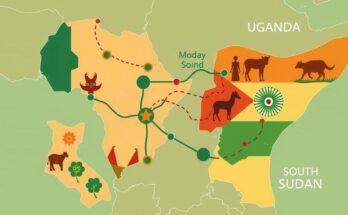The IMF and World Bank are conditioning aid to Lebanon on steps towards normalization with Israel and Hezbollah disarmament. Recent discussions highlighted the need for political reforms to secure funding for reconstruction after recent conflicts. The European Union also demands banking reforms to facilitate aid, emphasizing Lebanon’s significant reconstruction needs amid ongoing instability.
The International Monetary Fund (IMF) and the World Bank are reportedly conditioning Lebanon’s access to reconstruction funds on the normalization of relations with Israel and the disarmament of Hezbollah. In a recent meeting, IMF chief Kristalina Georgieva conveyed to Lebanon’s acting central bank governor, Wassim Mansouri, that funding would be linked to specific steps with a defined timeline related to these issues. This move aligns with anticipated political pressures aimed at achieving normalization and disarmament in Lebanon.
The report follows comments by U.S. Special Envoy to the Middle East, Steve Witkoff, suggesting that Lebanon and Syria might engage in normalization agreements previously brokered by former President Donald Trump with several Arab nations. Recently, Lebanese Finance Minister Yassin Jaber indicated that the World Bank is preparing a preliminary plan for a $1 billion reconstruction project following damage from recent Israeli conflicts, contingent upon Lebanon implementing necessary financial and political reforms.
The European Union has also stipulated that its funding will require structural reforms within Lebanon’s banking system, delaying the disbursement of €500 million as part of a 2024 agreement aimed at controlling refugee flows to Europe. Lebanon’s estimated reconstruction costs are between $6 to $7 billion, with Hezbollah reportedly providing around $650 million for restorative efforts in southern Beirut and surrounding areas, reinforcing its commitment to rebuilding.
Despite challenges such as intimidation and ceasefire violations from Israel, residents in some affected southern Lebanese villages have begun returning to their homes. Hezbollah has taken proactive measures to support Palestinians in Gaza in light of the ongoing conflict, particularly following the escalated hostilities initiated on October 7, 2023. The group’s engagement intensified following the outbreak of violence, leading to a ceasefire with Israel initiated on November 27, 2024, after Israel suffered significant losses.
In summary, the IMF and World Bank’s financial assistance to Lebanon is now tied to the normalization of relations with Israel and Hezbollah’s disarmament. This requirement follows recent discussions about Lebanon’s political and economic reform needs. Although reconstruction efforts are underway, Lebanon faces substantial challenges, including significant funding gaps and ongoing conflicts. The situation remains complex as international financial institutions navigate political dynamics in the region.
Original Source: www.presstv.ir




